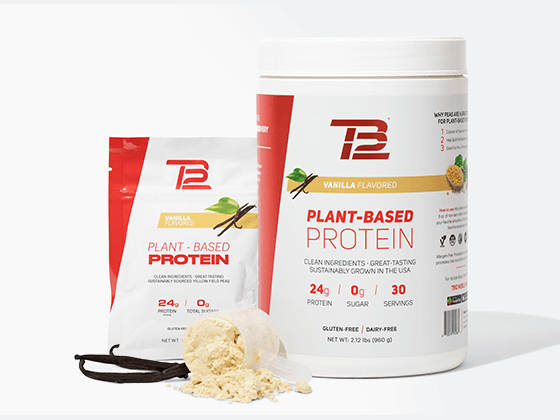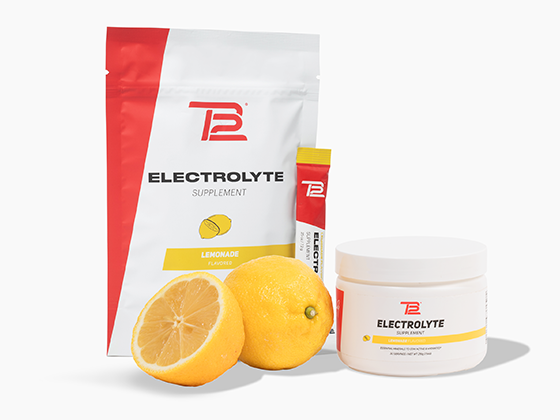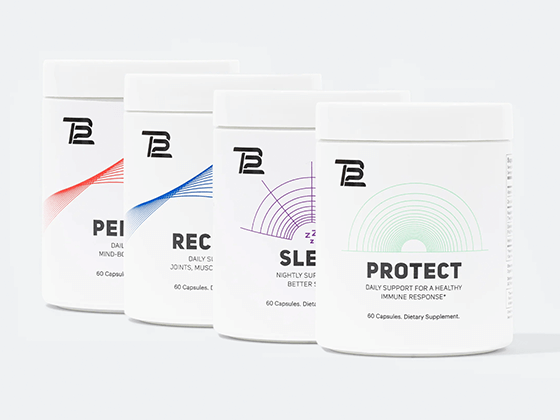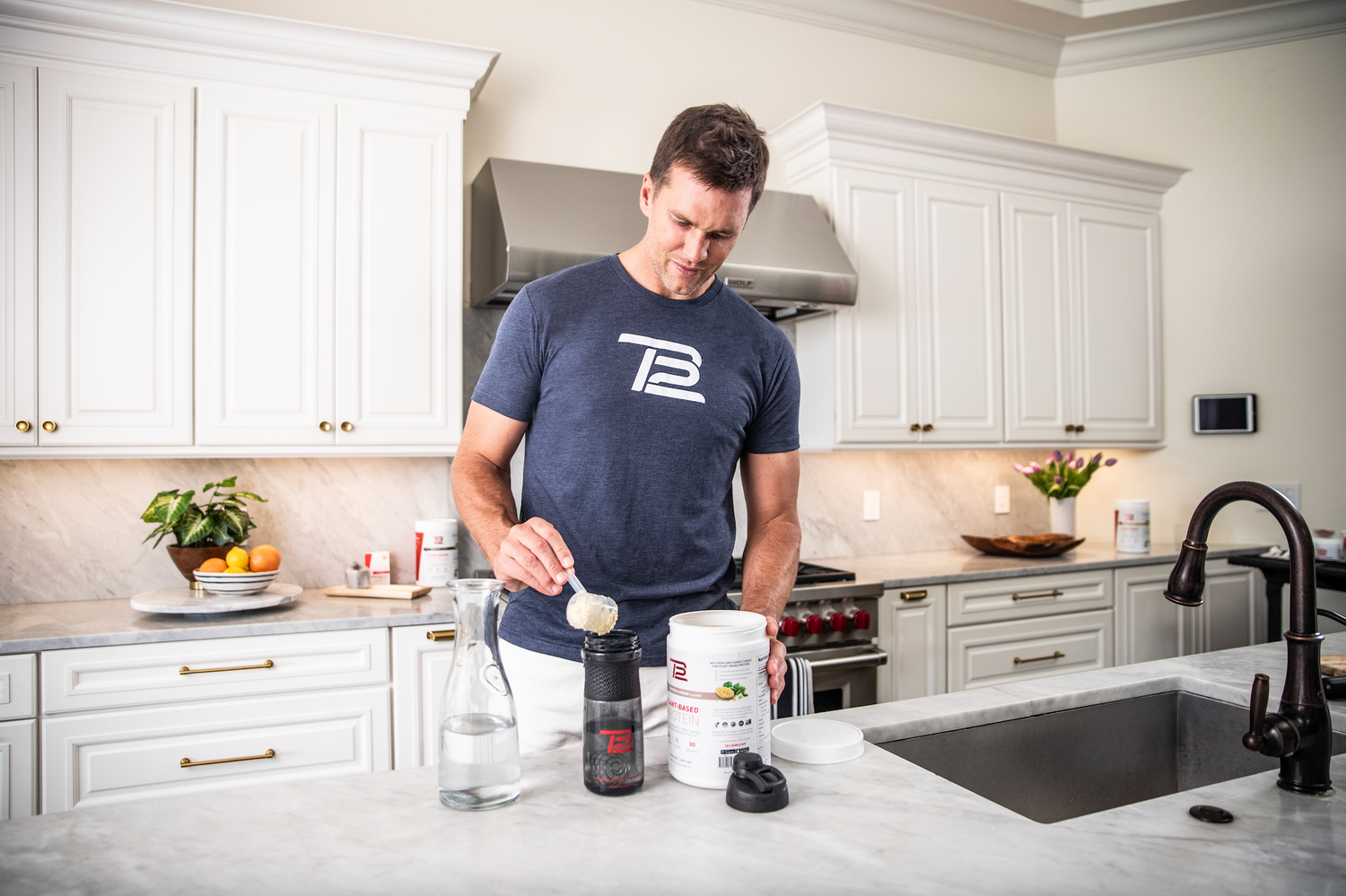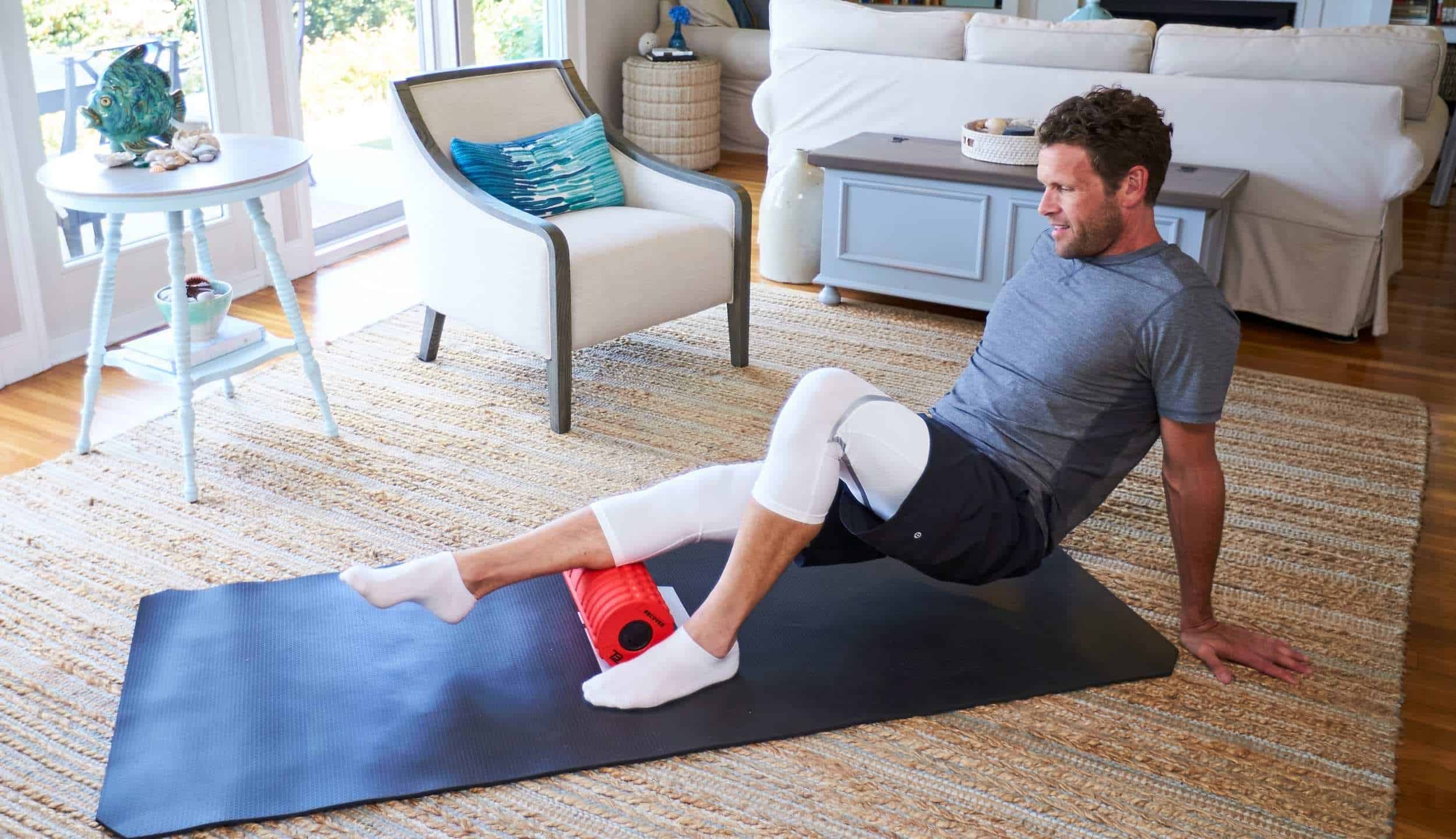Behind every high-performing athlete is a meticulously developed routine designed to help them feel, play, and recover at the highest level. The choices you make in the hours before you take the field have a direct effect on your competitive performance, so try to develop a routine that works for you and sets you up for success.
Everyone’s pregame routine is different, but we’re here to help you develop your own TB12-inspired regimen.
01 Sleep
Sleep is the first part of game day preparation you can control, and may be the most crucial way to ensure your body is ready to perform at its peak. A full night’s sleep lets your body and mind recover to prepare for their next challenge, so it’s imperative that you get the appropriate amount of sleep before a game. For maximum performance and recovery, aim for at least 8 hours of sleep before the game.

02 Hydration
You need to make hydration part of your daily routine in order to keep your muscles primed for performance. Start your day with 12-16 ounces of water after you wake up, and reach your daily hydration baseline by drinking a minimum of ½ of your bodyweight in ounces of electrolyte-infused water. For example, if you weigh 150 pounds you need to drink at least 75 ounces of water each day. The electrolytes help ensure that you replenish the minerals you lose through sweat and breathing.

03 Breakfast
Start your day off right by eating breakfast packed with a mix of protein, healthy fats, and a good source of carbs (i.e. fruits or vegetables). Eggs, avocados, a protein-packed smoothie, a plant-based protein shake, or fruits like bananas or blueberries are all great options. Remember that the food you eat before a game will be the fuel your body burns, so be thoughtful about what you put into your body on game days. Limit your sugar intake and avoid simple starches and other carbohydrates that will only slow you down.

04 Pliability
Make time for pliability work using a vibrating roller or sphere before and after the game to both activate your muscles and begin the process of recovery. Spend 1 to 2 minutes on each major muscle group, starting at the bottom and working your way up. Focus on the key areas you’ll be activating in your game, or anything that feels sore or tight. We recommend targeting the following muscle groups to start: calves, hamstrings, glutes, lower back, and quadriceps.

05 Muscle Activation
With just a few simple bodyweight exercises, you can give your body the final pregame prep it needs and activate your core and your glutes. Try the following exercises: bodyweight squats, glute bridges, front planks, leg assisted side planks, and lateral band walks. These exercises will help facilitate muscle activation and can serve as an excellent addition to a dynamic warm-up.

06 Mindset
Find a few minutes to get your head in the game. Whether it’s music to get you amped up or meditation to calm you down, find a routine that works for you. Try pregame visualization exercises to mentally prepare yourself for the task at hand. Set aside 2-3 minutes to sit quietly and reflect on what you need to do during the game to perform at your best, and then imagine yourself doing exactly that. It’s a great way to get into a winning mindset and finalize your pregame preparation.

07 Jump Start Your Recovery
Your recovery begins as soon as the game ends. Drink a protein shake or high-protein smoothie as close to the end of the game as possible, and use your vibrating roller or sphere on the muscles you hit pregame to help them begin to recover. If any muscles feel stiff or tight after the game, be sure to spend a few extra minutes thoroughly targeting them. Prioritize hydration for the rest of the day too, and add electrolytes to all the water you drink as you’ll need to replenish the minerals you lost through sweat and your breath.

Regardless of whether you’re a 7-time Super Bowl Champion, a young athlete trying to take your game to the next level, or a weekend warrior prepping for pick-up basketball, the effort you put into preparing for a game will manifest itself in your play. How you prepare your mind and body for a game is ultimately up to you, but these 7 tips provide the foundation for a routine that will enable you to maximize your performance and improve your recovery.

